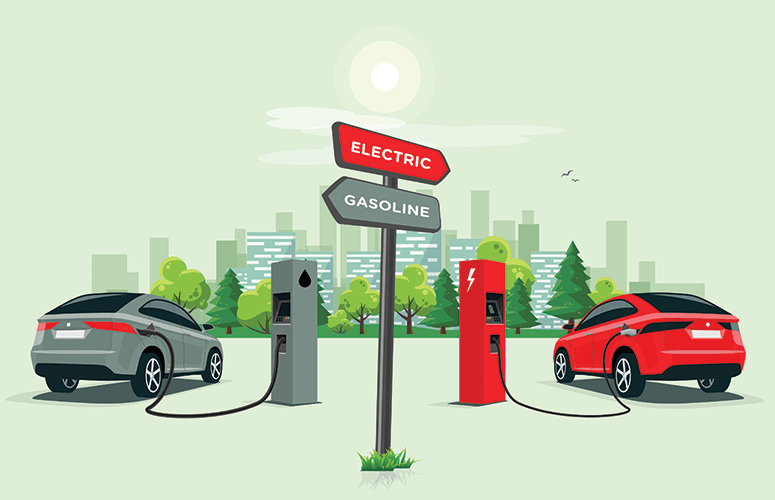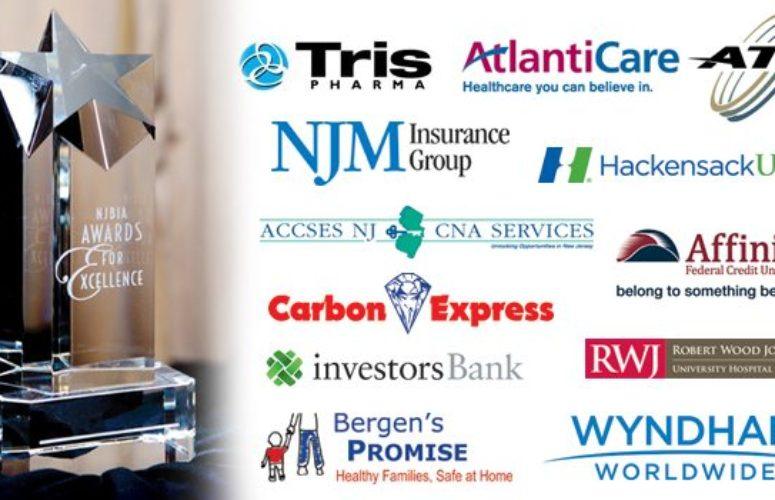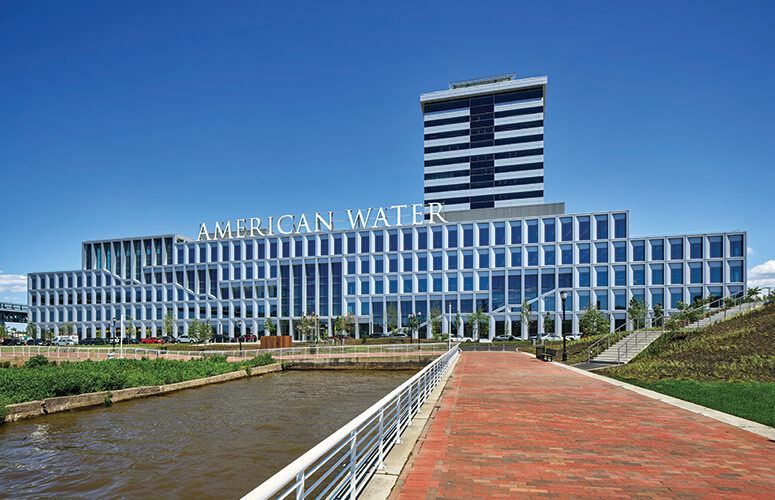
The Pros & Cons of the Advanced Clean Cars Act II
New Jersey has adopted California’s law requiring 100% zero-emission vehicles sales by 2035, but various opponents give many reasons for applying the brakes on the rule.
By Meg Fry, Contributing Writer On Feb 8, 2024Gov. Phil Murphy and the New Jersey Department of Environmental Protection (NJDEP) adopted California’s Advanced Clean Cars Act II (ACC II) at the end of last year, requiring auto manufacturers to sell an increasing percentage of new zero-emission vehicles (ZEV) in order to reach 100% sales in the state by 2035.
The administrative ruling also enacts more stringent multi-pollutant exhaust emission standards on internal combustion engine vehicles (ICE).
“New Jersey has only two choices when it comes to emission standards: [those] set by the Environmental Protection Agency (EPA) or those set by California,” NJDEP states. “[And] by setting an annual ZEV requirement, the department is providing certainty to vehicle manufacturers, suppliers, utilities, and infrastructure manufacturers to make the long-term investments that will be crucial to large-scale deployment of light-duty ZEVs and consumer choice.”
New Jersey joins 12 states in the adoption of California’s stricter rules thus far, including New York, Massachusetts, Delaware, and Maryland.
“The ACC II rules are expected to stimulate job growth in the electric vehicle (EV) sector, foster charging infrastructure development, and contribute to a cleaner and more sustainable state economy,” says Eve Gabel-Frank, senior associate for Gabel Associates, an energy, environmental, and public utility consulting firm in Highland Park that provides support to ChargEVC, a coalition seeking to advance the EV market.
Meanwhile, Doug O’Malley, state director of Environment New Jersey, a research and advocacy group in New Brunswick, and president of ChargEVC-NJ, says nomenclature suggesting the ruling is a “gas car ban” is false.
“It’s a transition to EV sales,” O’Malley states, “supercharged by the [federal] Inflation Reduction Act and the investments being made by manufacturers as well as the whole supply chain for American production for both EV vehicles and batteries.”
Those opposed to the mandate cite multiple concerns, including a lack of charging infrastructure, electrical grid capacity, Transportation Trust Fund options, job security, accessibility, reliability, and affordability issues for low- and middle-income residents – all for what they say will have little impact on climate change.
“Adopting ACC II before New Jersey ramps up EV infrastructure development is a classic case of putting the cart before the horse,” says Jim Appleton, president of the New Jersey Coalition of Automotive Retailers (NJ CAR), a non-profit Trenton-based organization representing nearly 500 franchised vehicle retailers in the state.
“This is an extreme government mandate that limits consumer choice and threatens to make new cars unaffordable for working and middle-class families in New Jersey,” he says.
Ray Cantor, deputy chief of government affairs for the New Jersey Business and Industry Association (NJBIA), says that while climate change is an important issue, the Murphy administration overstepped its authority in enacting these rules.
“Adoption of the ACC II program would continue to improperly and illegally delegate significant New Jersey policy decisions to another state with different demographics, geographies, economic issues, and policy concerns – as well as some of the highest taxes, utility rates, and gasoline and fuel prices in the country,” Cantor states.
More than 100 business and labor groups, lawmakers from both sides of the political aisle, and organizations representing lower-to-middle income residents have publicly opposed the ruling and requested that the state Legislature intervene.
Mike DeSilva, co-owner of Liberty Auto Group and chairman of the American International Automobile Dealers Association, says he hopes New Jersey follows in Connecticut’s footsteps in withdrawing ACC II adoption and “trying to find a more reasonable approach.”
New Jersey’s Legislature, however, declared that a “comprehensive strategy to reduce greenhouse gas emissions 80% below the 2006 level by the year 2050 is in the public interest,” according to NJDEP.
“At this point, the only thing that will spark any change is either a change in administration, or the muck actually hitting the fan,” DeSilva says.
Affordability
ACC II calls for an increase of EV sales from the current 9% to 43% by 2027.
Given the truncated timeline and demand on manufacturers, Appleton says the “laws of supply and demand will dictate that consumers will have to pay more for a limited availability of vehicles.”
Additionally, while proponents say cash-on-the-hood incentives and zero sales tax will help create price parity for EVs, issues with “stop-and-start cycles” have reduced consumer trust and acceptance.
Long-Term Value
Factoring in the vehicle purchase price, fees, taxes, fuel costs, maintenance, and insurance, NJDEP states “the potential cost savings of a battery electric vehicle (BEV) purchased in 2035 is $6,683 when compared to an ICE vehicle.”
“You’re not only kissing goodbye the gas station, but oil changes, too,” O’Malley says. “There’s also less opportunity for things to go wrong when you don’t have 1,000 explosions happening in your engine every second.”
Appleton – an avid supporter and current driver of an EV – disagrees, citing firmware, software, battery, and tire issues.
“I’ve put 36,000 miles on my EV, and I’m about to purchase my second set of new tires,” Appleton says. “And they’re not cheap because it’s a heavier vehicle.”
Economic Impact
NJBIA’s Cantor says the Murphy administration did not consider the ramifications of upending a fuel-driven economy prior to adoption of ACC II.
“Our standards of living, food production, even healthcare, are all reliant on abundant and affordable energy,” he says. “If you transform the economy too quickly to sources of energy that may not work as well, we face significant harm.”
On the flip side, Kathy Harris, a senior advocate with the Natural Resources Defense Council in New York, publicly states that New Jersey would reap “more than $97 billion of economic health, air quality, and climate benefits.”
That may not matter as much as the higher utility rates homeowners and small businesses may face, states Tom Miller, senior director of energy and environment for the nationwide Alliance for Automotive Innovation.
Infrastructure Requirements
Harris explains that creating a charging network in New Jersey and across the country is not only possible, but also already in the works.
“As part of the Federal Infrastructure Investments and Jobs Act, New Jersey will receive more than $104 million to help further build out the charging infrastructure through 2026,” she says.
However, Utility and Transportation Contractors Association Executive Director Dave Rible says, “The pace of the transition is simply incompatible with current infrastructure and economic realities.”
“There is also a workforce crisis across many technical professions, including many of the ones who are needed to build out an EV ecosystem,” Cantor states.
Reliability
While range anxiety has hindered EV purchases in the past, O’Malley said it’s now a non-issue.
“If you want to drive from Cape May to High Point, you can likely do that on a single charge,” he says.
Additionally, for model years 2026 through 2029, a ZEV “must maintain 70% of its range value for a useful life of 10 years or 150,000 miles,” NJDEP states.
However, Appleton says in the four years he’s been driving EVs, he’s noticed big differences in range in correlation with changing seasons. “During cold days in the winter vs hot days in the summer, the 300 miles of range I’ve come to expect drops like a stone,” he says.
Accessibility
Many opponents of ACC II insist the ruling discriminates against low-income and rural communities that will have difficulty accessing charging stations, as well as residents living in multi-unit dwellings.
NJDEP states that while “adjusting to longer charging times at public charging stations is part of the transition to ZEVs, “for those living in multi-unit dwellings, “the state has grant programs available to assist building managers in making electric vehicle supply equipment available to their residents.”
Workforce Ramifications
NJDEP acknowledges in its adoption of ACC II the “potential negative economic impacts on New Jersey businesses and jobs.”
“The ACC II program will advance a paradigm shift for the vehicle sector that will have indirect economic impacts on various areas of the economy, including dealerships, automotive repair, retail gasoline stations, engine component suppliers, ZEV infrastructure businesses, and the green job economy,” NJDEP states. “Although jobs may be lost during this transition, job opportunities will also be created.”
Indeed, the clean energy economy accounted for more than 3 million jobs across the nation in 2022, with New Jersey among five states that recorded job growth in the sector of more than 6%, according to the 8th annual Clean Jobs America analysis by Environmental Entrepreneurs.
Marketplace Intervention
Appleton says when it comes to intervening in the free market, the Murphy administration has once again jumped the gun.
“The state should first get to 15% EV sales before imposing the ACC II mandates,” he says. “However, the DEP has chosen to ignore other options, like the stringent federal clean car rules recently proposed by the Biden administration.”
President Biden signed an executive order in 2021 setting a goal that 50% of all new cars and passenger trucks sold in 2030 must be ZEVs. The EPA also put forth updated emissions standards.
DeSilva says the state’s adoption of ACC II doesn’t make any real sense.
“Consumers aren’t buying EVs in the volumes needed, and that leaves dealers needing to accept unwanted cars and still carry the holding costs,” he says. “Meanwhile, consumers can purchase gas-powered vehicles out-of-state and register them in New Jersey.
“What does that do other than inconvenience customers and hurt auto retailers in state?” he says.
To access more business news, visit NJB News Now.
Related Articles:





